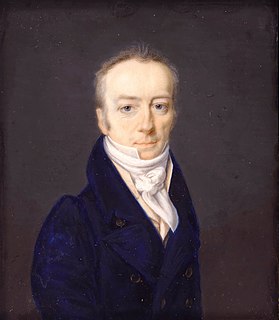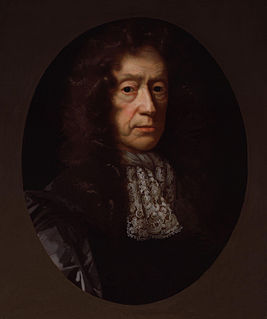A Quote by Johann Kaspar Lavater
He, who boldly interposes between a merciless censor and his prey, is a man of vigor: and he who, mildly wise, without wounding, convinces him of his error, commands our veneration.
Related Quotes
Man can learn self-discipline without becoming ascetic; he can be wise without waiting to be old; he can be influential without waiting for status. Man can sharpen his ability to distinguish between matters of principle and matters of preference, but only if we have a wise interplay between time and truth, between minutes and morality.
Man is made of opinions,—of truth and error; and his life is a warfare like all other lives before him.... Man goes on developing error upon error till he is buried in his own belief.... It is the office of wisdom to explain the phenomena in man called disease, to show how it is made, and how it can be unmade. This is as much a science as it is to know how to decompose a piece of metal.
He that alone would wise and mighty be,Commands that others love as well as he.Love as he lov'd! - How can we soar so high?-He can add wings when he commands to fly.Nor should we be with this command dismay'd;He that examples gives will give his aid:For he took flesh, that where his precepts fall,His practice, as a pattern, may prevail.
Man is not by any means of fixed and enduring form (this, in spite of suspicions to the contrary on the part of their wise men, was the ideal of the ancients). He is nothing else than the narrow and perilous bridge between nature and spirit. His innermost destiny drives him on to the spirit and to God. His innermost longing draws him back to nature, the mother. Between the two forces his life hangs tremulous and irresolute.
For a man's property is not at all secure, though there be good and equitable laws to set the bounds of it, between him and his fellow subjects, if he who commands those subjects, have power to take from any private man, what part he pleases of his property, and use and dispose of it as he thinks good.
It is so wonderful to our neurologists that a man can see without his eyes, that it does not occur to them that is just as wonderful that he should see with them; and that is ever the difference between the wise and the unwise: the latter wonders at what is unusual, the wise man wonders at the usual.
The inner censor of the mind of the true believer completes the work of the public censor; his self-discipline is as tyrannical as the obedience imposed by the regime; he terrorizes his own conscience into submission;he carries his private Iron Curtain inside his skull, to protect his illusions against the intrusion of reality.
Economic man and the Calvinist Christian sing to each other like voices in a fugue. The Calvinist stands alone before an almost merciless God; no human agency can help him; his church is a means to political and social organization rather than a bridge to deity, for no priest can have greater knowledge of the divine way than he himself; no friend can console him - in fact, he should distrust all men; in the same fashion, Economic Man faces a merciless world alone and unaided, his hand against every other's.
Keep the extent of your abilities unknown.The wise man does not allow his knowledge and abilities to be sounded to the bottom, if he desires to be honored at all. He allows you to know them but not to comprehend them. No one must know the extent of his abilities, lest he be disappointed. No one ever has an opportunity of fathoming him entirely. For guesses and doubts about the extent of his talents arouse more veneration than accurate knowledge of them, be they ever so great.
Poverty, we may say, surrounds a man with ready-made barriers, which if they do mournfully gall and hamper, do at least prescribe for him, and force on him, a sort of course and goal; a safe and beaten, though a circuitous, course. A great part of his guidance is secure against fatal error, is withdrawn from his control. The rich, again, has his whole life to guide, without goal or barrier, save of his own choosing, and, tempted, is too likely to guide it ill.
The man who boldly transgresses, amassing a great heap unjustly--by force, in time, he will strike his sail, when trouble seizes him as the yardarm is splintered. He calls on those who hear nothing and he struggles in the midst of the whirling waters. The god laughs at the hot-headed man, seeing him, who boasted that this would never happen, exhausted by distress without remedy and unable to surmount the cresting wave. He wrecks the happiness of his earlier life on the reef of Justice, and he perishes unwept, unseen.







































